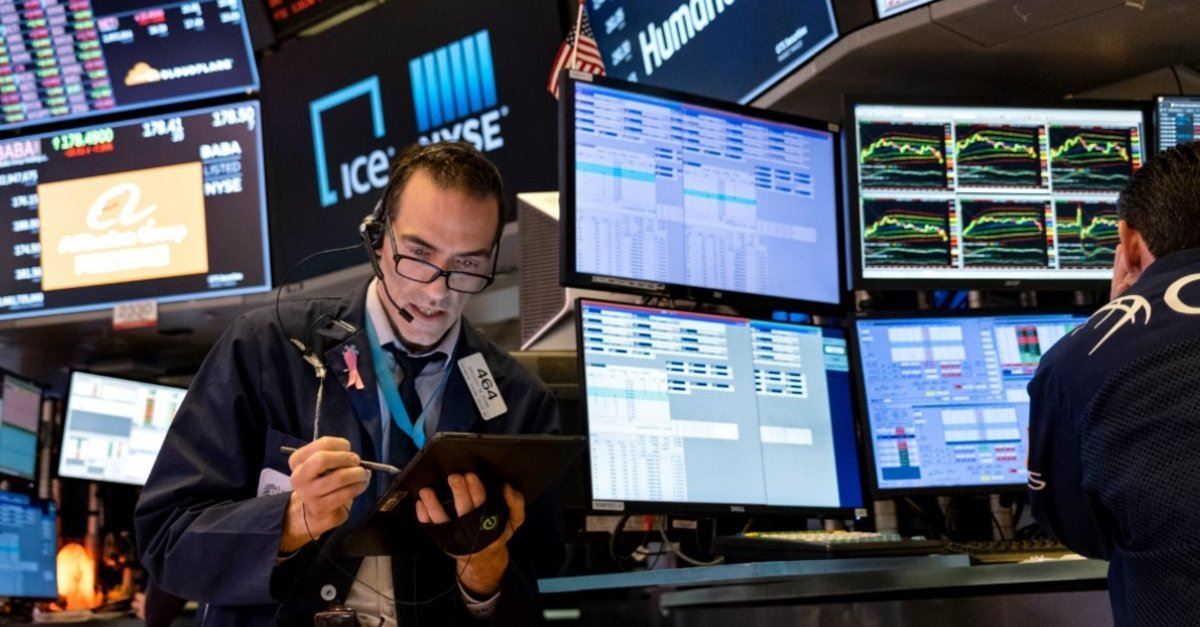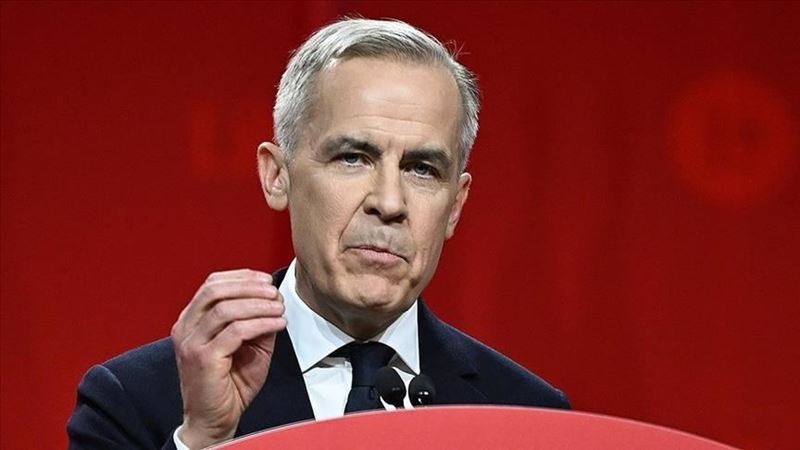In global markets, risk appetite remains low, with the possibility that the US Federal Reserve (Fed) will raise interest rates by 50 basis points in March, following the higher-than-expected inflation data in the US yesterday.
While the Consumer Price Index (CPI), announced in the USA yesterday, increased by 7.5 percent on an annual basis in January, surpassing the expectations, the increase in question marked the strongest increase since 1982.
After the inflation exceeded the expectations, the bond markets are starting to see that the Fed will increase interest rates by 50 basis points with a 92 percent probability in March, and it is predicted that the bank will increase interest rates by 7 times throughout the year.
st. Louis Fed President James Bullard, in his speech yesterday, stated that he wanted to see a 100 basis point interest rate increase with the meeting in June, and showed that he supported the 50 basis point increase in March.
Richmond Fed President Tom Barkin said that there is still a lot of data until the March meeting and that he is open to thinking about a 50 basis point increase.
With these developments, the US 10-year bond yield was stabilized at 2.03% after reaching its highest level since August 2019 with 2.0550%.
The ounce price of gold, on the other hand, closed the day with a decrease of 0.3 percent at $ 1,827, with the expectation that the Fed will become even more falconry, and continued to decline to $ 1,824 on the new day.
Yesterday, the S&P 500 index lost 1.81 percent, the Nasdaq index fell 2.10 percent and the Dow Jones index lost 1.47 percent in the New York stock market. Index futures contracts in the USA are following a sales-weighted course on the new day as well.
In Europe, expectations regarding the monetary policy of the European Central Bank (ECB) continue to be shaped by verbal guidance.
Yesterday, ECB President Christine Lagarde said in a statement that the rate hike will not solve any of the current problems, on the contrary, it may strangle the economy's recovery from the new type of coronavirus (Kovid-19) epidemic.
Expressing that they will not hesitate to take this step if an interest rate increase is required, Lagarde stated that all steps to be taken will be gradual.
ECB chief economist Philip Lane said that although inflation reached record levels in Europe, it would decline on its own without taking drastic measures.
Despite the aforementioned statements, Germany's 10-year bond yield continued its upward trend, increasing by 25 basis points to 0.28 percent since the ECB's monetary policy meeting.
On the other hand, the Central Bank of Russia is expected to raise the policy rate by 100 basis points to 9.50 percent at its meeting today.
While the stock markets in the USA, which closed before the sales strengthened, followed a mixed course, the DAX 30 index gained 0.05 percent in Germany, the FTSE 100 index gained 0.38 percent in the UK and the FTSE MIB 30 index gained 0.45 percent in Italy. In France, the CAC 40 index decreased by 0.41 percent. European indices are moving in a downward trend in futures today.
In Asia, the risk appetite was low after the sluggish course of the New York stock market yesterday, while the markets in Japan are closed due to the holiday.
While the expectations that comforting regulations can be made regarding the real estate sector in China, which is in a troubled situation, are reducing the downward pressure in the stock markets, the spread in Kovid-19 cases continues to be the main risk factor in the region.
Close to the closing, Shanghai composite index lost 0.20 percent in China, Kospi index in South Korea lost 0.91 percent and Hang Seng index in Hong Kong lost 0.42 percent.
Domestically, the BIST 100 index decreased after the inflation data announced in the USA yesterday and closed the day at 2,038.67 points with a 0.20 percent depreciation. Dollar/TL, on the other hand, is trading at 13.52 at the opening of the interbank market today, after closing at 13.5128 with a decrease of 0.2 percent yesterday.
Analysts stated that share and sector-based divergences continue due to the announced company balance sheets, and noted that the balance of payments and industrial production data to be announced today are in the focus of investors. Economists participating in the survey conducted by AA Finans expect the current account account to have a deficit of 3 billion 980 million dollars in December 2021, and the calendar adjusted industrial production index to increase by 10.8% in December 2021 compared to the same period of the previous year.
Analysts stated that abroad, CPI in Germany, Gross Domestic Product (GDP) and industrial production in England and consumer confidence index data in the USA will be followed, and that developments in Ukraine may also have an impact on asset prices.
Recalling that the international credit rating agency Fitch Ratings is expected to announce its assessment of Turkey after the markets are closed, analysts said that technically, 2.020 and 2.000 levels are in the position of support and 2.050 points in the resistance position in the BIST 100 index.
Fitch Ratings, in its assessment on December 2, 2021, affirmed Turkey's credit rating as "BB-" and changed its credit rating outlook from "stable" to "negative".
The data to be followed in the markets today are as follows:
10.00 Turkey, December balance of payments and industrial production
10.00 Turkey, February CBRT Market Participants Survey
10.00 Germany, January CPI
10.00 UK, 2021 Q4 GDP
10.00 England, industrial production in December
18.00 USA, February University of Michigan consumer confidence index









Comments
No comment yet.